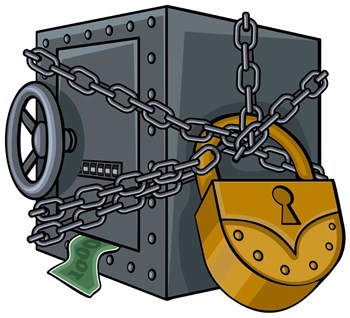
When electing board members to serve on behalf of your co-op, condo or HOA community, you expect them to be on their best behavior and think of the needs of the building and the people who live there when making their decisions. Regardless of the type of community they serve, board members have a responsibility to govern and make decisions on behalf of that community—often referred to as the board's “fiduciary duty.”
Decisions made on behalf of a board's fellow residents must be made in good faith, with the good of the community firmly in mind; violating this duty can lead to legal consequences for boards, and individual board members who betray their constituents. And, sadly, as with any position of power, some people do stray—and this is why the legal community is steadfast about clearly defining what is expected and required in a board's fiduciary duty.
A Fine Line
Board members must walk a fine line when navigating the breadth and limitations of fiduciary duty, as it applies to co-op, condo and HOA board members in New Jersey, and they must therefore be extremely knowledgeable regarding their responsibilities. But the burden of fiduciary duty does not fall solely on the board; owners and residents must too be aware of their rights, so that they will know what to do should a board member make a decision that perhaps is not in the best interests of the entire community.
“In New Jersey, The Condominium Act sets forth the duties and responsibilities of a condominium association,” explains Melissa Clarke, an associate attorney with the law firm of Lomurro, Davison, Eastman & Munoz P.A. in Freehold.
According to Clarke, an association is governed by both a master deed and its bylaws. These documents generally contain provisions to the effect that “the association is formed to administer, manage and operate the common affairs of the unit owners; shall provide for the maintenance, preservation and control of the common elements; and that the board of directors (or board of trustees) is empowered to maintain the common elements according to the governing documents.”
The fiduciary relationship between a board and the members of the association is similar to that of a corporate board and its shareholders. If a board acts in direct violation of this relationship, as with a corporation, it is then susceptible to penalties.
“If an owner believes that a board or board member has violated its fiduciary responsibility, either by failing to apply an applicable law, refusing a law outright, violating the governing documents, or applying the agreed-upon rules in an unequal or inconsistent manner, an owner can file a lawsuit in Superior Court requesting an injunction that the court order the board/member to abide by the particular law properly, thereby living up to its fiduciary responsibility,” says Anne P. Ward, Esq., an attorney with the law firm of Ehrlich, Petriello, Gudin & Plaza of Newark.
Community Watch
Certain actions related to fiduciary duty are under the jurisdiction of the New Jersey Department of Community Affairs (DCA), which has an enforcement division whereby owners can file complaints if they believe they've been dealt with unjustly by their respective boards.
“Every condo association, under the New Jersey condo act has what is called an Alternative Dispute Resolution (ADR) procedure available for owners to refer when they have a dispute among each other or with the board,” says Ward. “If an association does not have an ADR in place or refuses to offer it, an owner can file a complaint with the DCA, which will then levy a determination. In my personal experience, I've seen associations come very close to being fined as much as $2,000 for not having an adequate ADR prepared. In one case, I even had to draft one myself to help a client avoid such a fine.”
The Community Associations Institute (CAI), of which there are two chapters in New Jersey, offer ADR to their members.
Bad Judgment
“In New Jersey,” says Clarke, “there is a Business Judgment Rule that protects the internal business decisions of the board, provided that they were made in good faith, and based on 'reasonable' business knowledge. Generally, 'reasonable' business knowledge implies that the board has fulfilled its obligation to due diligence, which may include consulting with outside professionals.”
Speaking along similar lines, Mary W. Barrett, Esq., an attorney and shareholder with the law firm of Stark & Stark in Princeton, evokes the New Jersey Nonprofit Corporations Act, which requires that trustees “discharge their duties in good faith and with that degree of diligence, care and skill which ordinary prudent persons would exercise under similar circumstances in like positions.”
In other words, when in doubt, ask for help.
“If an ordinary prudent person would consult an expert during a particular circumstance, then the board is obligated to do the same,” continues Barrett. “Board members who are not sure what ordinary prudent persons would do are wise to err on the side of caution, and consult with experts on important association decisions.”
Board members, it should go without saying, are not infallible, and it is when they violate the aforementioned rules and regulations that they may find themselves in hot water. And, as one would expect with such a vast sphere of responsibilities, there are many ways that a board can fail to uphold its fiduciary duty.
“The New Jersey condo act requires notice of meetings, and that a meeting's agenda be published, for starters,” explains Ward. “Failure to do this is a violation. Treating residents unequally, or not enforcing rules consistently will almost inevitably result in a violation. For example, if the bylaws state that units cannot be rented, and the board is allowing certain owners to rent, while denying others the privilege, there's going to be a problem.”
Other notable violations of fiduciary duty include failure to adopt ADR; violating an owner's privacy in an egregious way; and self-dealing, i.e., board members making decisions that benefit themselves or their own businesses above the association.
In the event of a perceived violation by a board member, fellow board members and owners have several options. Oftentimes, governing documents will provide that, should a board member clearly violate provisions, the other members can expel the violating member without much ado. Wherein owners are concerned, they normally reserve the right to hold a special election—or even wait until regular elections—and vote out an allegedly unlawful board member. They can also contact the DCA, and file a lawsuit against anyone violating his or her fiduciary duty.
Law in Action
Clarke cites a recent case Anklowitz v. Greenbriar at Whittingham Community Association as a clear illustration of fiduciary duty as considered under the law. In the case, the court considered whether Greenbriar's alleged “blanket policy” of denying all requests to build additions was unconscionable. The court found that said policy was limited to room additions of the type proposed by the plaintiffs, which the association perceived as unacceptable in all cases, and that this policy developed over the years based on Greenbriar's experience with the municipal zoning authorities. Therefore, the court held that the association's decision to deny plaintiffs' application for a sun-room was protected by the business judgment rule.
The decision in Anklowitz neatly encapsulates the business judgment rule and its role in guiding fiduciary duty. To wit: “Decisions made by a condominium association board should be viewed by a court using the same business judgment rule which governs the decisions made by other types of corporate directors. The test is 1.) whether an association's actions were authorized by statute or by its own bylaws or master deed, and, if so, 2.) whether the action is fraudulent, self-dealing or unconscionable. If a contested act of the association meets each of these tests, the judiciary will not interfere. On the other hand, if the fiduciary duty of the association is breached by fraud or acts performed in bad faith, the business judgment rule is unavailable as a defense.”
Ward also points to a local case, the 2007 New Jersey state appellate court decision Ebert v. Briar Knoll Condominium Association, where, according to a 2011 article from The Huffington Post, the court “found violations of the state Condominium Act by the board in the failure to give notice of meetings, voting at meetings not open to unit owners, not taking minutes of meetings, and failing to make minutes available to unit owners before the next open meeting.”
“Courts are loath to intrude on the daily management of a condo association,” Ward says, “but if there's a violation of the law, they will surely do so.”
So while it may be an honor to be elected as a board member, one has to remember to be honorable while serving in such a capacity, and to not take advantage of the power he or she wields. With great power comes great responsibility.
Michael Odenthal is a staff writer for The New Jersey Cooperator. Freelance writer Danielle Braff contributed to this article.






Leave a Comment